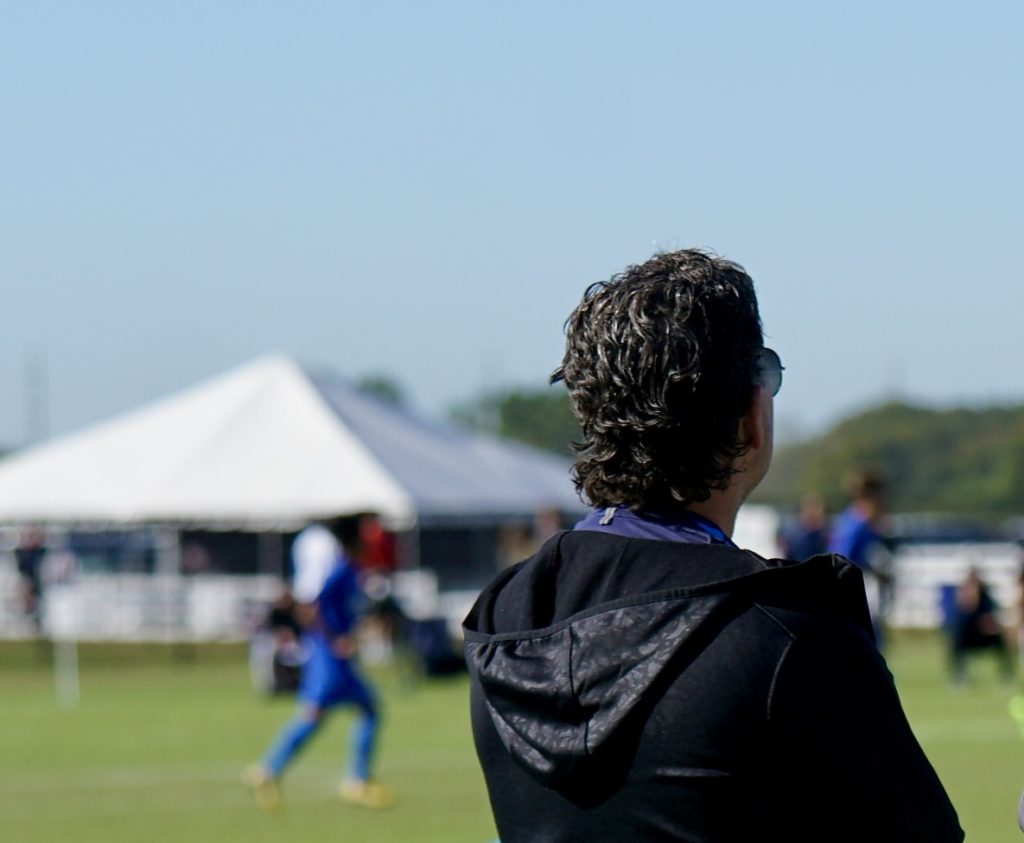It’s The Journey.
Kids, coaches, and parents don’t know how to deal with failure — usually. And, many people often fail to deal well with success. This is an issue in American society.
Introducing an amazing new columnist, Marc Sagal, who has worked with Manchester City, Leicester City, Liverpool Academy, and the New York Red Bulls along with numerous other players, clubs, and countries. Here are Marc Sagal’s insights on this topic.
Back in the 70s, ABC’s Wide World of Sports TV program had a really cool opening…
Spanning the globe to bring you the constant variety of sport. The thrill of victory… and the agony of defeat. The human drama of athletic competition.
It was a riveting introduction (at the time) not just because it showed athletes failing and falling in spectacular fashion but because viewers could relate in some way to screwing up.

As players, coaches and parents we are all somewhat familiar with what the ‘agony of defeat’ feels like. For as much as we achieve victory, failure is our more common experience. Strange then, that we spend so little time learning how to handle mistakes, how to cope with disappointment, how to deal with failure.
Failure has many flavors. There are the classic mistakes, like when you miss a PK or an easy finish, give up possession or let an easy shot get by you. But there are also more significant instances when you don’t achieve what you are hoping to, like not making a team or getting into the college program you’ve set your sights on.
Just like so many of you — or so many of your sons and daughters, I wanted desperately to become a professional footballer.
For me, not achieving this dream would have felt like failure. There were moments along the way where my dream seemed achievable but many more where it didn’t.

When something happened that pushed my dream further away, I felt crappy.
Getting injured or just making too many mistakes was demoralizing. But when things went well … being recognized in some way, playing lights out, winning … that felt amazing.
Sound familiar?
Fast forward to today and I’m here to tell you that equating success with things like being a pro, winning, making lots of money, and even playing well is not a good idea.
Neither is equating failure with unrealized dreams or goals, playing poorly, getting injured, embarrassing yourself, or losing.

Why isn’t it a good idea to define Success and Failure with these kinds of outcomes? Because you don’t have CONTROL over either. And yeah, I know you think you do. But you don’t.
Are you in control of winning?… With an opponent? A referee? A crowd?
Are you in control of how you play?… After you are hacked by a reckless defender? On a crappy pitch? When your coach doesn’t play you?
How about making it as a pro?… When scouts are looking for something you aren’t? When you are hurt for your big trial? When the club is only interested in younger players?
You get the idea.

Of course, you have some, maybe even a lot, of influence over how things go. Just not total control. And when you define Success and Failure in ways that don’t give you total control, you are less likely to get what you want.
So what should you do instead?
One of the first — and most difficult — things I work on with players (and teams, coaches and parents), is to redefine Success and Failure.
If you’ve heard the phrase ‘focus on the journey, not the destination’ then you have a sense for what I’m talking about. Sport Psychologists sometimes say ‘Process over Outcome’ or ‘Control the Controllables.’ It’s all code for roughly the same thing and it may just be the most powerful way to improve your chances of making your mark.
When you catch yourself focusing on, or worrying about, things like winning or playing well (the destination), try shifting focus to things like effort, preparation and attitude (the journey).
Focus on trying. This won’t come easily. The sports world conspires against it.
Soccer is a results-oriented business.
In the face of a results-oriented climate, a process-oriented mindset will do you wonders. With real buy-in, this approach can help you manage disappointment, control anxiety, improve consistency and increase focus. But buy-in requires that you can accept and articulate a new way of looking at yourself. A new story. A clear identity.
I woke up to a text from a professional player I work with. It was just a screengrab of something I had written to him early in our work together. It reminded me of why I do what I do, and it reminded me of the power of Identity.
Hey, I know you are feeling lousy right now. Time to remind yourself what success is really about … “Hard work and Dedication. About playing for others. About seeing what I can do and what we are capable of together. About pushing ourselves to go beyond where we are comfortable. About learning from mistakes and failures, NOT being afraid of them. About picking ourselves up when we’re down and picking others up when they need it. We’re about taking Responsibility for our actions and our feelings. We’re about Striving over Achieving. Effort over Outcome.” |
This approach was a game-changer because it refocused him on the things he could control and gave him back the power to be ‘successful’. The burden of the uncontrollable was lifted from his shoulders.
By the way, the emphasis on process has other payoffs. If you focus more on the journey, there is a good chance that you are going to find more meaning in your life in general.
You are also — paradoxically — more likely to win.





